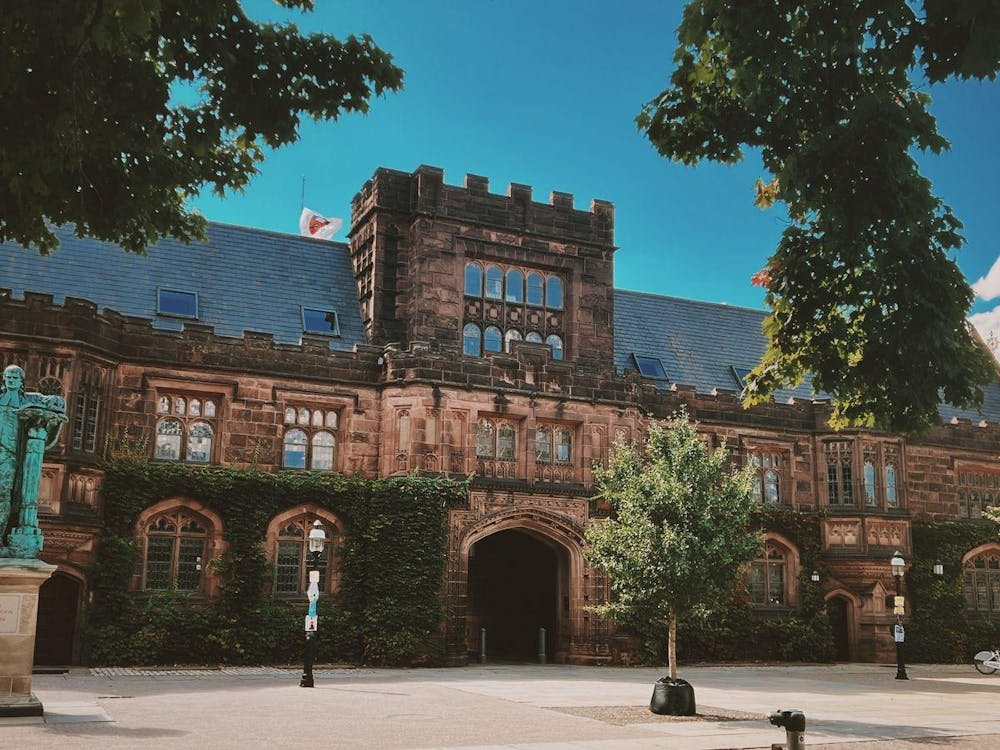To the Editor:
In 1971, John Rawls ’43 published his magnum opus “A Theory of Justice.” In this work, he investigated a profound question: What terms would free and rational actors envision for a just society from a “veil of ignorance” — that is, absent knowledge connected to their education, ethnicity, age, wealth, gender, and talents? Having not the slightest intuition into which echelon of society they would enter, these agents would fashion a framework that guaranteed equality of opportunity among its basic rights. In opposition to this idea, however, the recent column by Contributing Columnist Siyeon Lee ’27 echoes the all too familiar battle cry of a different value: equality of outcome. By arguing that Princeton’s admissions should be partially randomized in order to remove Princeton’s “elite nature,” Lee advocates for equality of outcome, an insidious doctrine that, aside from undermining innovation and effort, fails to account for the fundamental problem of allocating finite resources effectively.
According to Lee, Princeton’s preoccupation with greatness, evidenced by the modifier “Great” describing each graduating class, breeds intellectual elitism. Furthermore, she maintains that the vanity inherent in the word “great” is not a symptom of meritocracy but a defining feature. In hopes of instilling humility among Princetonians and combating the unjust ideology of meritocracy, she proposes partially randomizing admissions past the fulfillment of certain academic thresholds.
To start, Princetonians do not have a humility problem. She herself states that “the role of luck and privilege in admissions is well-established.” If Princetonians are under no illusion of the incalculably marginal chances of their acceptance, why inject an even greater magnitude of chaos into an already contentious process? If it is to humble students, our daily battles against fatigue and exhaustion indicate Princeton rigor is more than sufficient. This modesty is grounded in our four demanding years of arduous problem sets, time-devouring essays, and unenviable grade deflation. It is fortified from contending with the inimitable capacities of our peers. Our attempt at modesty is clear when a Princetonian is asked which school we attend, to which we reply: “I go to a college in New Jersey.” While often referred to as a “great” class, only a minority of students brandish or tout this label, and most remain humble. Introducing additional complexity into the college admissions process is superfluous in impugning Princeton students’ supposed belief that they are superior.
But even the project of trying to make Princeton students more “humble” insinuates an agenda of equal ends, which under the most charitable reading, is an outlandish impossibility. At worst, it is poisonous. Beyond disincentivizing effort, competence, and innovation (which would categorically imperil us all), “equality of outcome” is divorced from the realities of allocating finite resources. If admission to Princeton is valuable, shouldn't admissions officers seek out those who used their time in high school well and took advantage of their resources rather than leave it to arbitrary chance? Those are the students most likely to make the best use of the resources Princeton provides. While others abandon the sanctuary of sacrifices, responsibility, and fairness, I invite my fellow Princetonians to revisit the nebulous time before they donned black and orange and think to yourselves whether your acceptance should have been left to chance.
Joel Ibabao is a sophomore and the President of the Undergraduate Society of Ethics. He can be reached at ji7445@princeton.edu.








